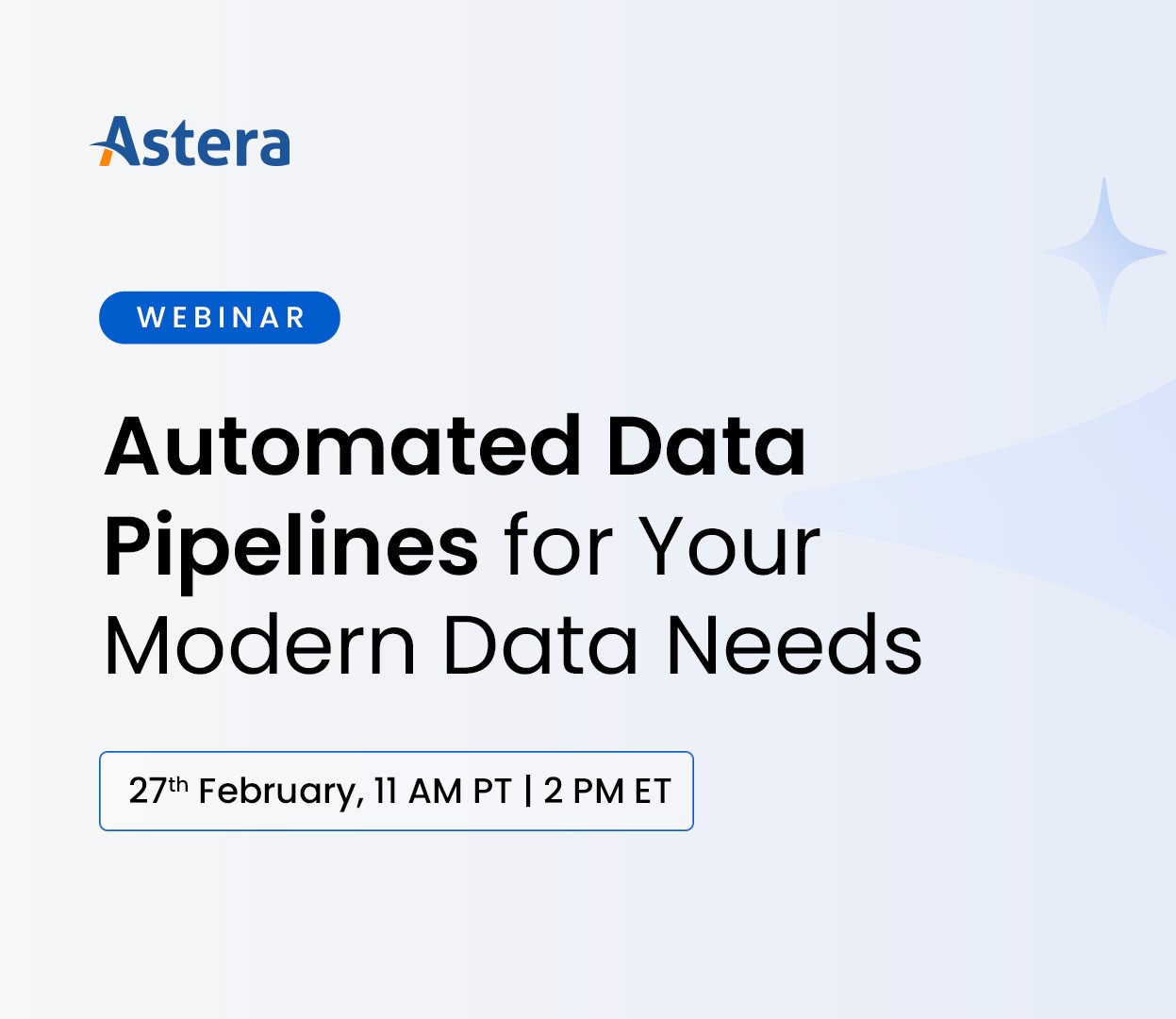
Benefits vs. Challenges of Data Warehouse Modernization
As essential as a data warehouse may be, taking an initiative so massive comes with its share of challenges. From data quality issues to performance optimization, a lot needs to be taken into account when building a data warehouse for your growing business.
Add to that the different steps involved in data warehouse modernization, including creating strategies to ensure that your data warehouse meets availability and data warehouse scalability requirements, and you’ve got a lot on your plate.
In this blog post, we’re letting you in on all the benefits and problems involved in data warehousing to help you plan your next big project.
Data Warehouse Modernization Benefits vs Challenges
Most business today wish to move their data warehouse to the cloud so that they can take advantage of the data warehouse scalability, availability, and reliability offered by these platforms. What’s more, since businesses are dealing with more data sources than ever before, it’s essential for them to ensure that your data warehouse will be dynamic enough to keep up with the changing requirements of your growing business.
Today, businesses are looking to modernize their data warehouses by embracing agile methodologies that are focused on automation with minimal manual intervention. Using this approach does not only promote usage of the data warehouse for a large number of processes and functions but also improves efficiency by reducing the need to create and deploy data models from scratch.
Data warehouse modernization efforts also include increased reliance on flexible architectures and support for a wide range of data sources, allowing businesses to integrate their data from multiple touchpoints. That said, like any project, it’s essential to weigh out the benefits and potential problems to ensure you’re prepared for all that’s in store with your next data warehousing project. Since every business is different, a thorough look at these benefits and challenges will also help you create a well-knitted architecture to ensure you can reap the full rewards of a modern data warehouse.
Benefits of Data Warehouse Modernization
Data warehouse modernization offers businesses the agility required to scale up and make data-driven decisions. Here are some benefits that might help you see how a modern data warehouse fits in your business.
Supports Advanced Analytics Requirements
Data analytics is at the core of every growing business today. Businesses need to extract insights from data arriving from various touchpoints and available in several different formats. With a modern data warehouse, you’ll not only be able to integrate this incoming data with ease, but drawing the right information and insights from this data will also be a lot easier.
Since incoming data is centralized in a single repository, you’ll also be able to de-compartmentalize various functions and view the business in a more holistic way.
As a basic example, say you’re currently using two different systems; one to manage your internal marketing and sales, and the other for overall financial management. With the help of a modern data warehouse, you’ll be able to see the data from all three of these areas in tandem, providing you with more depth and context to each system’s data and giving you access to insights that will help you make better budgeting decisions across multiple functions.

With data warehouse modernization, you’ll also be able to accommodate data from other functions and see how the success of certain departments is based on that of others. This single source of truth also makes it easier for you to identify and weed out errors and make decisions that will be in the best interest of your business.
Offers High Speed and Performance
In today’s competitive environment, the minutest delays can prove to be extremely costly for businesses. Companies today need to act fast to ensure that they don’t lose customers to their competitors – and this isn’t possible without a centralized system that gives you access to all of your data in one place.
As agility continues to become a requirement for more businesses than ever before, the need for a single source of truth that fuels quick decision-making cannot be emphasized enough. With a well-knitted data warehouse at your disposal, you’ll probably never have to worry about data accessibility as you’ll be able to integrate and query your data with third-party reporting and visualization tools such as PowerBI that will give you a consolidated view of your data and processes.
Data warehouse modernization ensures that your data is always available and can be accessed without any affecting the productivity and efficiency of your growing business. Modern data warehouses are also built to support large data volumes, giving you the complete picture of your business and where it stands.
Lowers Costs
A well-knitted data warehouse sitting at the heart of your business intelligence infrastructure will help you lower costs involved in purchasing multiple data integration tools to break data silos. Since modern data warehouses are designed for end-user accessibility, you won’t need to hire additional resources to query data, generate reports, and perform analyses. Having a modern data warehouse in your arsenal will also help you save on maintenance costs associated with identifying data lost during the ETL process or poor quality data that is unusable due to a lack of validations during source-to-data warehouse mapping.

With high security and data quality checking capabilities, data warehouse modernization also helps you lower costs associated with lost data or data that is rendered unusable due to poor quality.
Agility and Elasticity
Growing businesses today are experimenting with varied data modeling approaches to meet their changing requirements. Modernizing the data warehouse and using an evolving infrastructure allows these businesses to become more agile and access an increasing number of data sources without worrying about integration and compatibility issues.
Data warehouse modernization also streamlines the process of deriving insights from data, increasing flexibility for your business. What’s more, when using a modern data warehouse based on the agile approach, you won’t need to go and manually rebuild data models and ETL flows from scratch every time you wish to integrate some data. Agile data modelling allows you to update and redeploy your models in minutes and continuously evolve your data architecture.
Potential Problems in Data Warehouse Modernization
While there are many benefits of cloud data warehouse solutions, it’s equally important to see the other side of the picture as well. There are a few challenges involved in data warehouse modernization that may make some businesses rethink their modern data management plan.
Here are some of the major challenges of data warehouse modernization:
Lack of Governance
Laws and regulations pertaining to privacy have been a hot topic in the world of data for a few years now. Businesses today need to comply with strict governance rules which can impact everything from the way consumer data is handled to where it is stored.
In an ideal scenario, a data warehouse should contain data from all possible endpoints and functions to ensure that there aren’t any gaps in the system. That said, businesses may find themselves in a sticky situation should they mistakenly overlook governance or compliance requirements.
Fortunately for many, modern data warehouses tackle these concerns by introducing an abstraction layer that acts as a shield between source systems and the end-user, allowing businesses to design multiple data marts that deliver specific data depending on the requirements, and ensuring that regulatory needs are met during the reporting process.
Access Control
Defining a structure for access control is extremely necessary when dealing with data warehouses. In most cases, businesses are unable to differentiate and decide which departments or personnel must absolutely have access to the data warehouse. Not balancing resources and granting permissions efficiently results in unnecessary load on the system, creating bottlenecks that could have been avoided. The lack of a proper structure for access control can also open up sensitive source systems to access by unauthorized users which may prove to be detrimental for the business.
Lack of an Efficient Data Strategy
Creating a well-thought-out data strategy is imperative when building or modernizing a data warehouse. Without a data strategy, it will not only be difficult for different teams to adopt to the new data warehouse but the lack of a proper plan will also come in the way of realizing the full benefits that a data warehouse can offer. Collaboration between stakeholders is necessary for this, which is why development, design, and planning need to be part of one continuous process.
Supported Cloud Data Warehouse Software
As mentioned earlier, it’s essential to import data from several different sources into your data warehouse to get a holistic view of your business operations and processes. For this reason, all major modern data management and warehousing solutions must support integration from popular cloud platforms, applications, and databases such as Redshift, Snowflake, Oracle, and MS Azure.
By leveraging the individual features and capabilities of these data sources and integrating them, you can improve the efficiency of your business processes and maximize utility.
Support for a large number of diverse sources can also prove to be highly beneficial in multi cloud environments where a business may have data stored on several different cloud platforms and might need to derive insights by consolidating data from these sources. In such a situation, the availability, scalability, and flexibility offered by cloud database providers such as Amazon Redshift and Snowflake can come in handy and you can improve visualization and dive deeper into your processes by improving visualization with a tool like PowerBI.
Get a Holistic View of Your Data with Astera DW Builder
Built on a metadata-driven approach, Astera DW Builder is a unified platform designed to facilitate data warehouse automation and management. With a no-code interface, the tool is ideal for both business and technical users interested in taking a closer look at their data to identify patterns and opportunities of growth.
As an end-to-end solution, Astera DW Builder also allows users to create dimensional data models and automate deployment to cloud platforms, offering you increased agility and flexibility to manage your data the way you like.
Ready to build a fully functional modern data warehouse in just a few days? Schedule a demo to experience the power of Astera DW Builder first-hand!
 Astera AI Agent Builder - First Look Coming Soon!
Astera AI Agent Builder - First Look Coming Soon!
